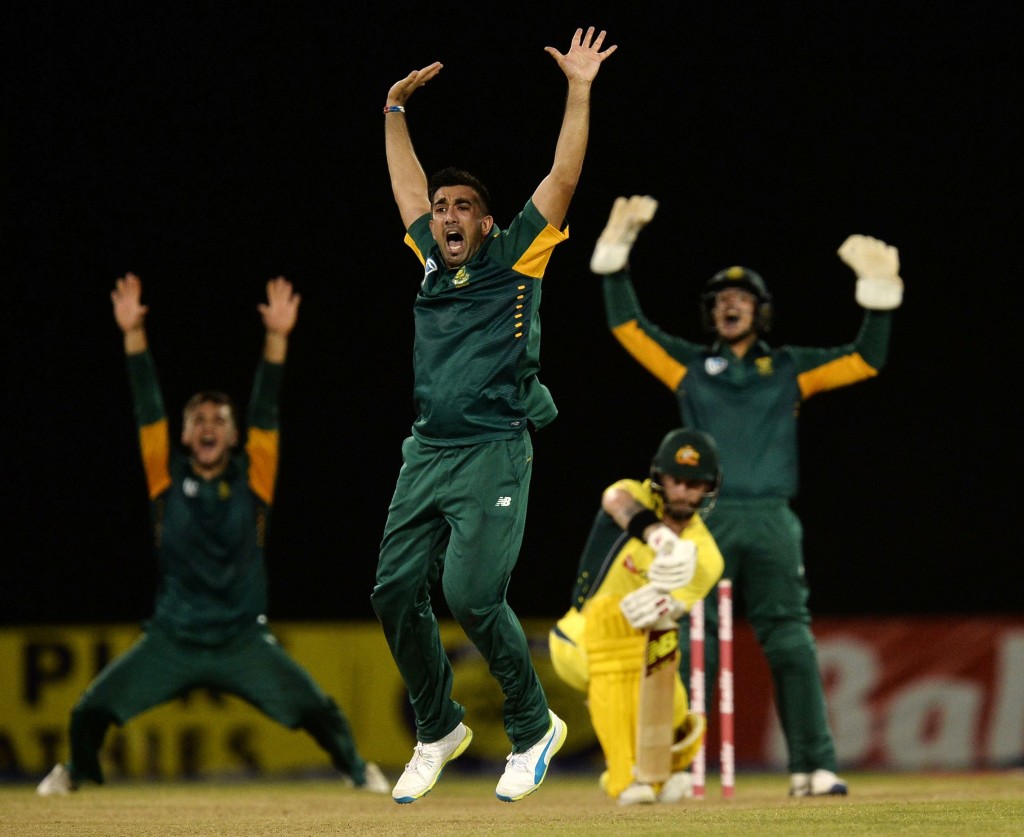South Africa’s new spin trio was responsible for the unlikely yet timely win against Australia in Guyana.
On Tuesday, former West Indian fast bowler Ian Bishop made an interesting statement. While commentating on the third match of the Tri-Nation series match between Australia and South Africa, Bishop lamented the state of the pitch at the Providence Stadium in Guyana.
The slow pace of the wicket as well as the lack of bounce has led to three low-scoring affairs. The nature of the pitch, said Bishop, has detracted from the contest.
Perhaps that statement was made in reference to the spectacle (or lack thereof) in the first three matches. Indeed, the quality of cricket produced thus far hasn’t exactly set the world alight.
And yet, there have been some telling individual performances. The bowlers have dominated. The batsmen, with the necessary patience and determination to negotiate the conditions, have prospered.
In the Proteas’ first match against West Indies, they posted 188 all out in 46.5 overs. On that occasion, Rilee Rossouw was the standout with 61 off 83 balls. Rossouw hit two fours over the course of that innings. If not for Rossouw’s gutsy display, the Proteas would have fared even worse than they did.
In the Proteas’ second game against Australia, they were fortunate to reach 189-9 in 50 overs. None of the top-five batsmen played an innings of substance. The shot selection was poor, while the running between the wickets was frantic. The top-five failed as a collective, and South Africa were left reeling at 104-5 after 25 overs.
Farhaan Behardien’s 62 off 82 balls ensured that South Africa reached a competitive total. Behardien’s knock was, of course, a reminder of what could be achieved on a low and slow wicket if a batsman took some time to play himself in.
Behardien’s effort kept the Proteas in the fight. And yet, it was the Proteas bowlers who landed a series of body blows and then ultimately the knockout punch.
Wayne Parnell and Kagiso Rabada combined to take three wickets upfront and place Australia on the back foot. Captain AB de Villiers then managed the new spin-bowling trio of Imran Tahir, Aaron Phangiso and debutant Tabraiz Shamsi to good effect.
In the lead-up to this match, much was made of the Proteas fielding three specialist spinners in their starting XI. What was really encouraging to see on the day was the variety of deliveries that the three players utilised.
Tahir made another influential contribution with his leg-spinners and well-disguised googlies. Phangiso was targeted by the explosive Aaron Finch at one stage, but managed to beat the bat on several occasions with his left-arm off-spin.
Shamsi, in his first ODI, troubled the opposition batsmen with the trajectory and placement of his chinaman delivery. The 26-year-old showed good control, and was unlucky not to claim more than one wicket.
The South African batting remains a concern. The senior players have much to prove in the coming fixtures. A more patient and determined showing is needed by the top-five collective.
The Proteas will be a force in this series if they lift their batting effort. The bowlers have hit some form, and won South Africa the game against Australia in Guyana. De Villiers will know that he has a good mix of bowling options going forward.
Picture: AFP/Gallo Images







